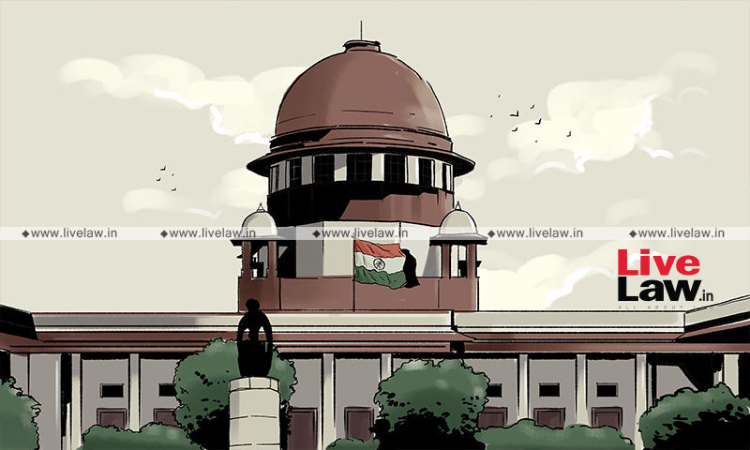Supreme Court's 'Illegal But Permissible' Jurisprudence
Manu Sebastian
30 July 2023 9:57 AM IST

There is an obvious difference between a judgment of the Court and a newspaper editorial or an opinion piece. While both seek to take a principled stand and appeal to a higher ethical conscience, a court judgment has the power to create real world consequences, whereas an editorial piece can only aim to shape public opinion at an abstract level. The Court’s judgment can nullify the effects of an illegal act, restore justice to the affected party and visit the wrongful party with penal consequences so as to create a deterrence value. Without this element of enforceability, a Court’s judgment will be very much like an article in a journal. Of course, such a judgment will nevertheless have a precedent value; but it will be a process of laying down the law for the future without redressing the present injustice.
A noticeable pattern can be seen in some of the recent decisions whereby the Supreme Court holds certain actions to be illegal but allows them to continue. The reasons for allowing the illegality to continue are external factors, which are often couched in terms such as “larger public interest”, “national interest”, “balancing the equities” etc. The special powers of the Court under Article 142 of the Constitution to do “complete justice” are invoked to permit the illegalities to continue. The end result is that the relief becomes merely academic - a declaration of illegality with no real world consequence - and the wrongdoers get to reap the fruits of their wrongful actions. These are one may call the “operation successful but the patient died” scenario.
In the ED Director’s case (Dr.Jaya Thakur vs Union of India), the Supreme Court categorically held that the extensions given for SK Mishra in 2021 and 2022 were illegal. The logical consequence would have been that Mishra’s term as the ED Director can’t go beyond November 17, 2021. Nevertheless, the Court allowed him to continue in the post till July 31, 2023. After the matter was disposed of, the Centre yet again sought to extend his term and filed an application seeking extension till October 15, 2023. During the hearing, the Court asked the Centre if there is no other competent officer in the department to hold the post. The petitioners argued that allowing another extension will give a wrong signal that illegalities can be perpetuated. The Court, taking into consideration the Centre’s argument that the incumbent’s continuity is necessary for the FATF review, allowed him extension till September 15 in view of “larger national interest”.
A similar approach was seen in the case relating to the selection of District Judges in Kerala in 2017 (Sivanandan CT and others vs High Court of Kerala and connected cases). The unsuccessful candidates challenged the selection on the ground that the Kerala High Court fixed a cut-off on the basis of the viva-voce marks, after the tabulation of results, for drawing the final merit list. A Constitution Bench of the Supreme Court found fault with the Kerala High Court’s process and found it to be ultra-vires the relevant selection rules and termed it as “arbitrary”. However, the Court refrained from setting aside the selection, observing that the selected candidates have been functioning as District Judges during the last six years when the petition was pending in the Supreme Court. "We cannot lose sight of the fact that all the selected candidates are otherwise qualified for judicial office and have been working for a long period of time. Unseating them would be harsh and would result in a situation where higher judiciary would lose the services of duly qualified candidates who have gained experience over the last six years", the Court observed.
The approach in the Maharashtra Shiv Sena case(Subhash Desai vs Principal Secretary to Governor of Maharashtra) was also not different. The Constitution Bench held that the Speaker’s decisions to recognize Eknath Shinde as the Leader of the Opposition and to accept the person nominated by Shinde group as the whip of the Shiv Sena legislative party were illegal. The Court also held as unconstitutional the decision of the Maharashtra Governor to call for a floor test for the Uddhav Thackeray-led government. Yet, the Court refused to grant the relief to Uddhav Thackeray by saying that he can’t be reinstated as the Chief Minister since he resigned before facing the floor test. Despite observing that the Governor cannot interfere in inter-party disputes, the Court held that the Governor was justified in inviting Shinde to form the government. While those who indulged in unconstitutional acts did not face any consequences and in fact got to enjoy the results of their misdeeds, the Court ‘punished’ Thackeray for a political decision made by him.
The shining example of this approach is the Ayodhya-Babri Masjid case(M.Siddiq vs Mahant Suresh Das and others). The Constitution Bench held that the ouster of Muslims from the inner courtyard in 1949, after a group installed idols below the central dome of the mosque, was illegal “The ouster of the Muslims on that occasion was not through any lawful authority but through an act which was calculated to deprive them of their place of worship”, it observed. The Court also held that the destruction of the mosque “was an egregious violation of the rule of law”. “The Muslims have been wrongly deprived of a mosque which had been constructed well over 450 years ago”, the Court stated. However, the Court allowed the construction of the temple at the site where the mosque stood before its demolition and ordered that 5 acres of alternate plot be allotted for the construction of the mosque.
The hard truth is that moral censures and consolatory declarations cannot translate into tangible reliefs against grave infractions of law and violations of rights; rather, it can can result in incentivising injustice.
(Manu Sebastian is the Managing Editor of LiveLaw. He tweets @manuvichar. He may be reached at manu@livelaw.in)


